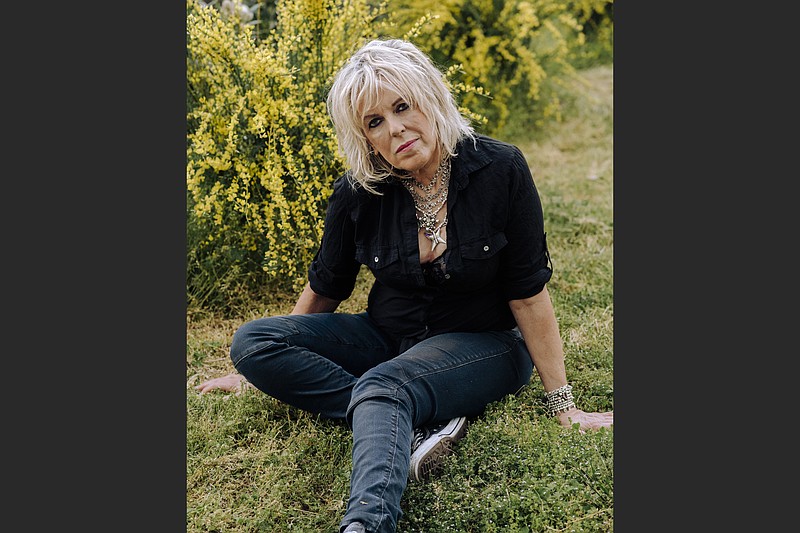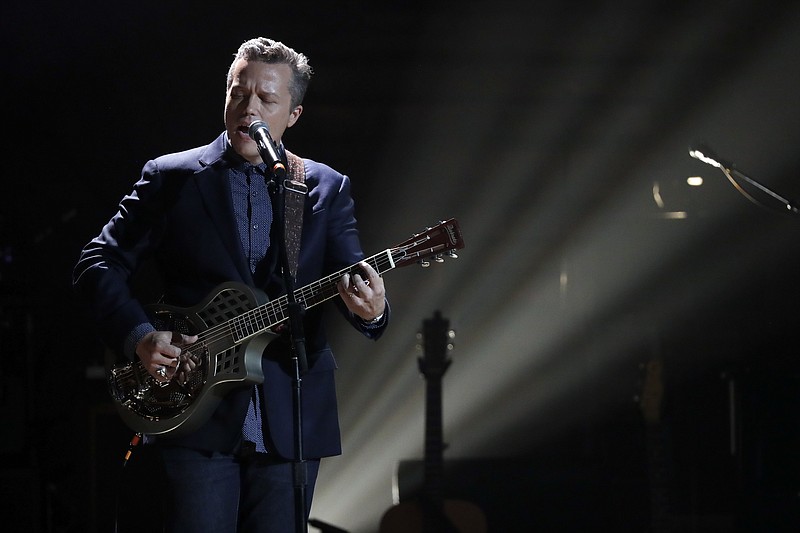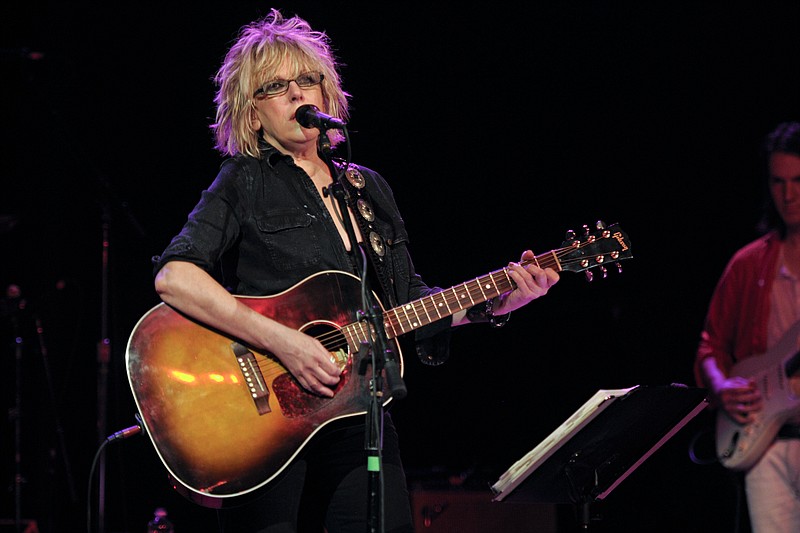Anyone who grew up in the 20th or 21st century is likely to perceive a recording as the definitive version of a given pop song. (It is not quite the same with most pieces of classical music, but it might become that way).
We have over the years grown accustomed to listening to studio-made recordings of music assembled in steps by self-aware performers and producers who are usually careful about what they capture and how it is processed. Most modern recordings — most of the commercial records made in any of our lifetimes — are deeply and expertly engineered. Some mistakes are tolerated as happy accidents, sometimes a bug can become a feature, but recordings are by and large deliberate things artfully arranged to seem spontaneous.
But until relatively recently in human history, musicians did not play their parts in studios, their ears smothered by headphones, with a machine clicking off an immovable beat. They did not have the movie-actor luxury of stopping and starting and listening to playback and stitching together takes.
Music was performed in front of the consumer. It was experiential, not something that could be collected and stored away in handsome display cabinets. It was always a one-off, never precisely the same. It was alive and sometimes ragged, subject to the quavering vagaries of human execution. It was never snapped-to-grid perfect; sometimes it was imbued with such mystery that rumors of possession and Faustian bargains might find purchase.
Sometimes you need a refresher course.
It had been a while since we had been to a rock show when we wandered down to the riverfront to hear Lucinda Williams and Jason Isbell in an outdoor concert on an August Saturday night.
ROCK SHOW
We debated not going; the pandemic has instilled in us a healthy fear of crowds, and we've avoided them since March 2020. We had caught local bands performing outdoors a few times since then, but those were walk-by-and-stand-around occasions. Going to an actual venue seemed a little insane.
We were encouraged that Isbell was requiring the venue to require proof of vaccination or a very recent negative covid-19 test as a condition of entry, but we weren't sure how enforceable that would be. Maybe people would be waved through after they flashed their phones to a security guard eager to keep things moving. At best, we figured, it would be a hassle; the line to get in would be long and slow-moving.
And there was a threat — later downgraded to a chance — of rain. And we would be in it.
We had tickets, but there was — thanks to the pandemic — a liberal return policy. We could turn them in for a refund right up to the time the concert started. I'll not say I wasn't tempted. I have been to hundreds of concerts, and most of them had some kind of snag.
I want good sound and good seats. I didn't need to upload any more anxiety into my life. It would have been easy to skip this concert — we'd seen these artists many times before and there was nothing to suggest there wouldn't be plenty of future opportunities to see them.
We went and, as usually happens when we decide to plunge ahead with something, had a lot of fun. It was an exceptional show, and the ticket scanning process was (like the vaccination shot itself) quick and painless.
The crowd was something less than capacity, probably more due to the fact that the dates of the show had been reshuffled a few times than any vaccination resentment on the part of the performers' audiences, but it was large enough.
At one point late during Williams' set, the Travelers baseball game across the river finished up and commenced its customary fireworks display, splashing color above the light-bathed Main Street and Junction bridges. It seemed as though we were in a real city then, a place of energy and potential rife with lively minds, bombs bursting in air as one of the great singer-songwriters repaid the memory of the late Z.Z. Top bassist Dusty Hill with a genuinely gut-bucket version of "Jesus Just Left Chicago."
At a time like that, how could we not love our fellow men?

RIGHTEOUSLY
It is no secret that I love Lucinda Williams and her music, that she is important in ways that few people with whom I do not have an authentic (as opposed to parasocial) relationship are.
That out of the way, her performance on that Saturday night was heroic.
Several factors might have contributed to this. For her, the show was something of a homecoming, as she is famously the daughter of poet Miller Williams, an Arkansas native who was a longtime fixture at the University of Arkansas and helped found the University of Arkansas Press. She had, she noted, family and dozens if not hundreds of friends in the audience.
For most of the crowd, this was probably the first big show they'd attended since the pandemic settled in. The emotion component of this shouldn't be overlooked, and the appreciative reception she received had something to do with release and relief that we all were once again gathered in this very specific kind of communion.
It was not Williams' first concert since things shut down in 2020 — she had opened for Isbell on a couple of prior dates — but an Arkansas audience had to feel special to her, particularly since she suffered a stroke last November, the severity of which some of us wondered about.
It left her unable to play guitar (she says she's relearning) and seemed to linger, with her being led out on stage and seated through much of the show. One wonders if the stroke didn't affect her choice of a set list — it leaned heavily on older material at the expense of the album she released last year, the excellent (and excellently reviewed) "Good Souls, Better Angels" from which she drew two cuts, "Bad News Blues" and her arrangement of Memphis Minnie's "You Can't Rule Me," originally recorded in 1937.
On the other hand, maybe Williams simply felt like turning the temperature down a little after that undeniably angry and politically charged record (its centerpiece was "Man Without a Soul," a song presumably aimed squarely at Donald Trump).
"Don't blame me," she told us, "I voted for Willie."
In any case, Williams was as usual backed by Buick 6, the power trio comprised of drummer Butch Norton, bassist David Sutton and guitarist Stuart Mathis, who have since 2014 abetted her both on the road and in the studio. Without Williams' contributions (on acoustic guitar and Telecaster), the sound edged somewhat closer to Chicago blues than the Delta-blues variant, and Williams' vocals were tougher and stronger than they've ever been.
Like a lot of artists with long careers, her voice has darkened and slid down in register over the years, and I would imagine she sings some of her older material in different keys like she once did. But she's also gone from an effective, idiosyncratic singer to a genuine powerhouse, not too far removed from a distaff Howlin' Wolf. There is thunder there now to go with her smokestack lightning, a deep rolling force.
You could say she provided fan service with her readings of "Pineola," about the aftermath of the suicide of poet Frank Stanford, whose story is an Arkansas analogue to the myth of Icarus, and "Drunken Angel," about the murder of Malvern-born Texas singer-songwriter Blaze Foley, but you could also point out the indelible nature of those songs and the "beautiful losers" (here, Williams borrowed Leonard Cohen's formulation) they commemorated.
Mathis — also the once and current lead guitarist for Jakob Dylan's Wallflowers — is a remarkable, economic player who mostly employed a white Gibson SG from the mid-'60s in counterpoint and answer to Williams' full-throated and alternately spine-tickling, heart-crushing vocals. And Sutton and Norton are supple, deep-impact players who nailed these familiar songs to the earth, reducing them to elemental things, heavier than their recorded versions.

TONE IS IN THE HANDS
It was a good night for guitar players.
Isbell remains at base a neck-climbing Guitar Center monkey, one of those kids squealing through "Crazy Train" on an Ibanez S Series with a shredder neck through a Blackstar amp in the middle of the showroom. For all his accomplishment and songwriting, he can't fool me. He's a rawker dude, living the life.
And he might genuinely be annoyed at being called and considered a "country star," though on "Letting You Go," a gentle waltz-time ballad he wrote for his soon-to-be 6-year-old daughter Mercy, he shows that he can certainly fill those boots.
And it says something that the intricately constructed, obviously heartful song could be considered among the weaker numbers in Isbell's catalog. It's sweet and just a little proud-papa smaltzy; only a hard-hearted cynic could reject it.
Or a daughter, who, Isbell informed us, was in the audience and nearing bedtime, occasioning the playing of what he said was her favorite song, an entirely too-much-fun version of the Peter Green-era Fleetwood Mac number "Oh Well." This proto-metal number allowed Isbell and his co-conspirator on six-string, Sadler Vaden (a fine singer-songwriter and lead player in his own right, whose function in Isbell's 400 Unit is to be a second Isbell, to the point that he even sings like the boss when the boss needs to strangle out his own fiery solo) plenty of opportunity to make cool noises.
It was a great night for tone, a vague concept easier to demonstrate than write about.
It is not exactly the pitch or timbre of a note. It is not exactly its loudness or qualities of attack and decay. It is perhaps all these, with something more. Some of us would say it is what elevates music from pure math, a persistent and ineffable sense of the human in the mix.
It is something that might be dismissed, as the irreligious might dismiss ghosts or spirits. It cannot be empirically divined and isolated. It lives in imperfectible things, the ways we come up short and compensate for shortcomings. It is distortion that presents as warmth. It is a thing that matters. Maybe it is the thing that matters most of all.
I think it is. My pitch is relative, not perfect. I hear through abused ears that function poorly in lively parties and noisy restaurants. They are not finely tuned. They don't need or seek perfection, though, and — I mean this as a compliment — Isbell and company often sound precisely like the record.
Williams has earned the right not to play the hits, and Isbell and the 400 Unit pointedly "don't take requests." (Coincidentally, Isbell and company played the song that contains this lyric, "Be Afraid," off 2020's "Reunions," directly after a shouted volley of requests came from the crowd.)
The reference point for Isbell is more properly Bruce Springsteen than Garth Brooks or Townes Van Zandt. (Isbell is like a more talented Springsteen in that as hard as he works, he rarely seems to be obviously working hard.)
That Isbell and Williams, who has been known to wear a "File Under Rock" T-shirt onstage, are so often referred to as "country" (or "Americana") artists says more about the decline of rock 'n' roll as a cultural imperative than it does about these artists. Likely they don't care what they're called, only that they have been called to have an outsized influence of the state of American arts and letters.
Isbell sometimes seems to shrug off his songwriting instincts as just something he can do, a knack he picked up along the way, but he's among the best lyricists ever to work any seam of American pop music, employing specific detail and ironic self-observation in a Raymond Carver-esque mode.
And the sonic power and fury of the 400 Unit rivals the E Street Band, who may have provided its model, with Derry DeBorja providing occasional accordion stylings in addition to the usual "weird" stuff Isbell credits him with. Chad Gamble and Jimbo Hart, on drums and bass, respectively, form a state-of-the-art rhythm section. It's a great entertainment machine as well as an indispensable artistic tool.
I imagine Isbell (who, on top of everything else, has just filmed a part in a Scorsese movie) can't believe his luck (for even the ridiculously talented need luck). It's a joy to hear him and a vicarious thrill to see him brandishing what seemed like a half-million dollars' worth of cool guitars over the course of an evening. (That's maybe an exaggeration but not by much; Isbell switched out guitars nearly every song, and the 1953 Telecaster he drew our attention to would probably fetch about $32,000 on an auction site even without its connection to its famous owner.)
I know not everybody has heard of him and that Taylor Swift moves a lot more units, and the last record moved a little bit away from the devastating brilliance of "Southeastern" and the introspective lilt of "Something More than Free" and toward a 21st-century stadium show aesthetic (informed by a lot of listening to Dire Straits) — but a few mornings after, I can't believe we ever thought about skipping this show.
It's probably not fun every night, and the travel has to be a strain, but right now Isbell is the most vital artist working in the traditional rock-band mode in this country.
Email: pmartin@adgnewsroom.com
